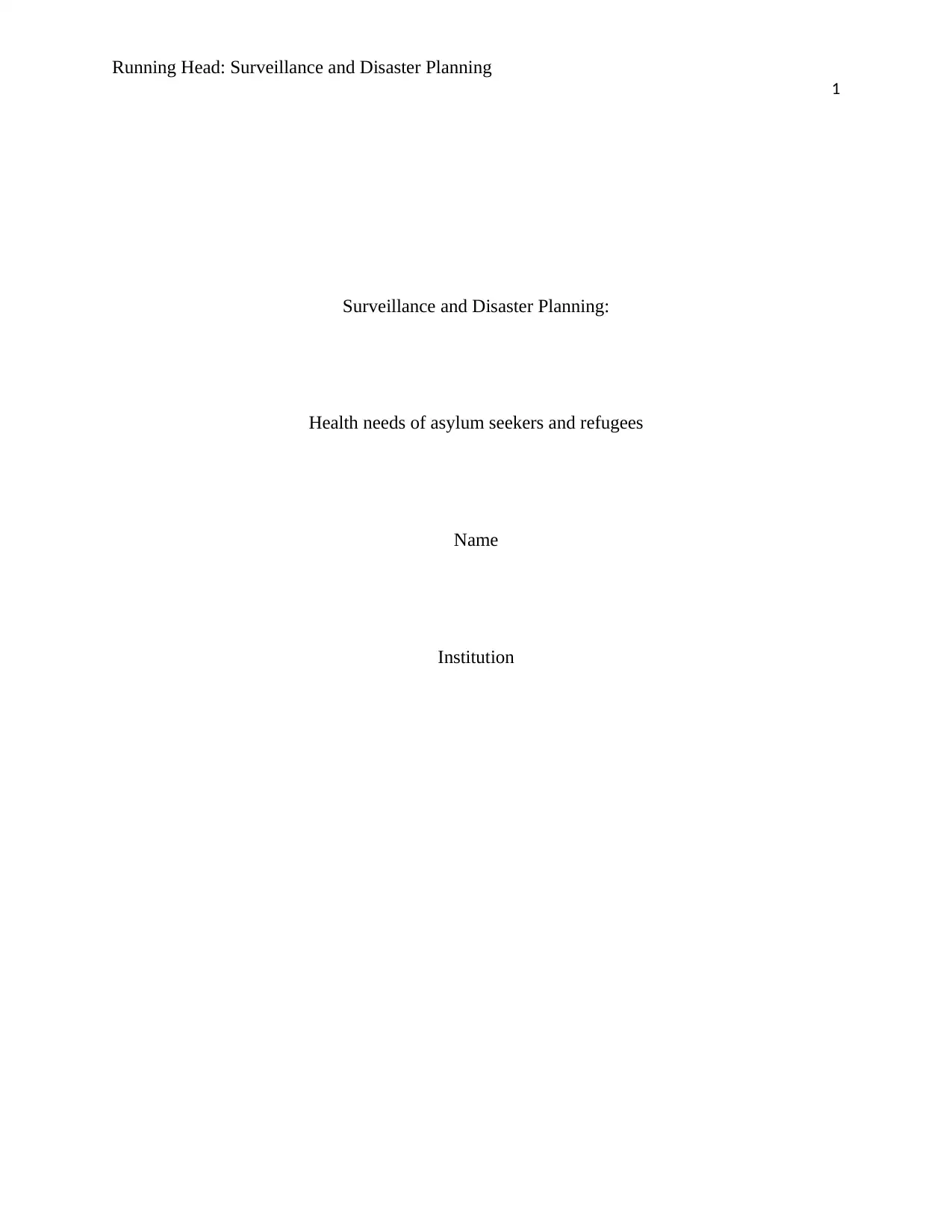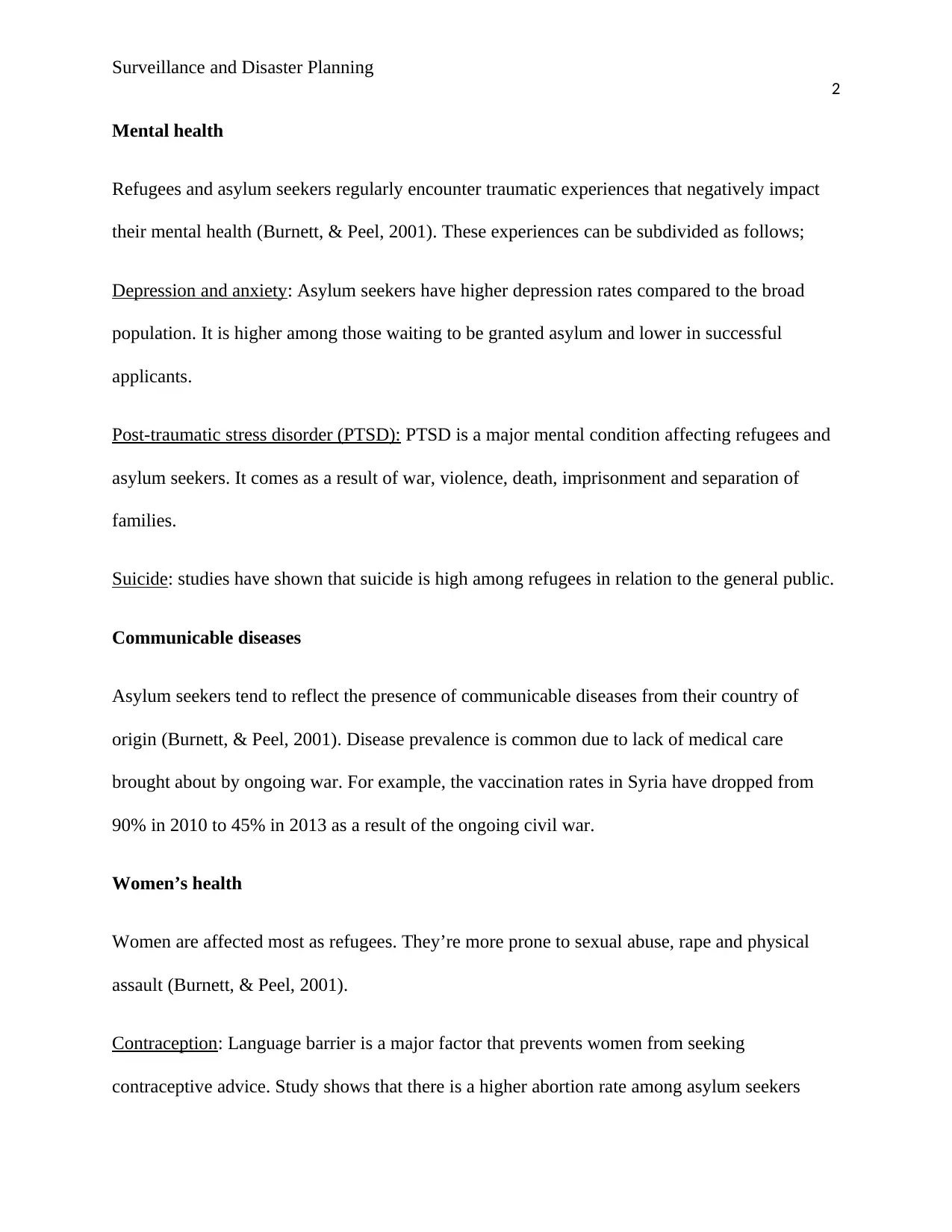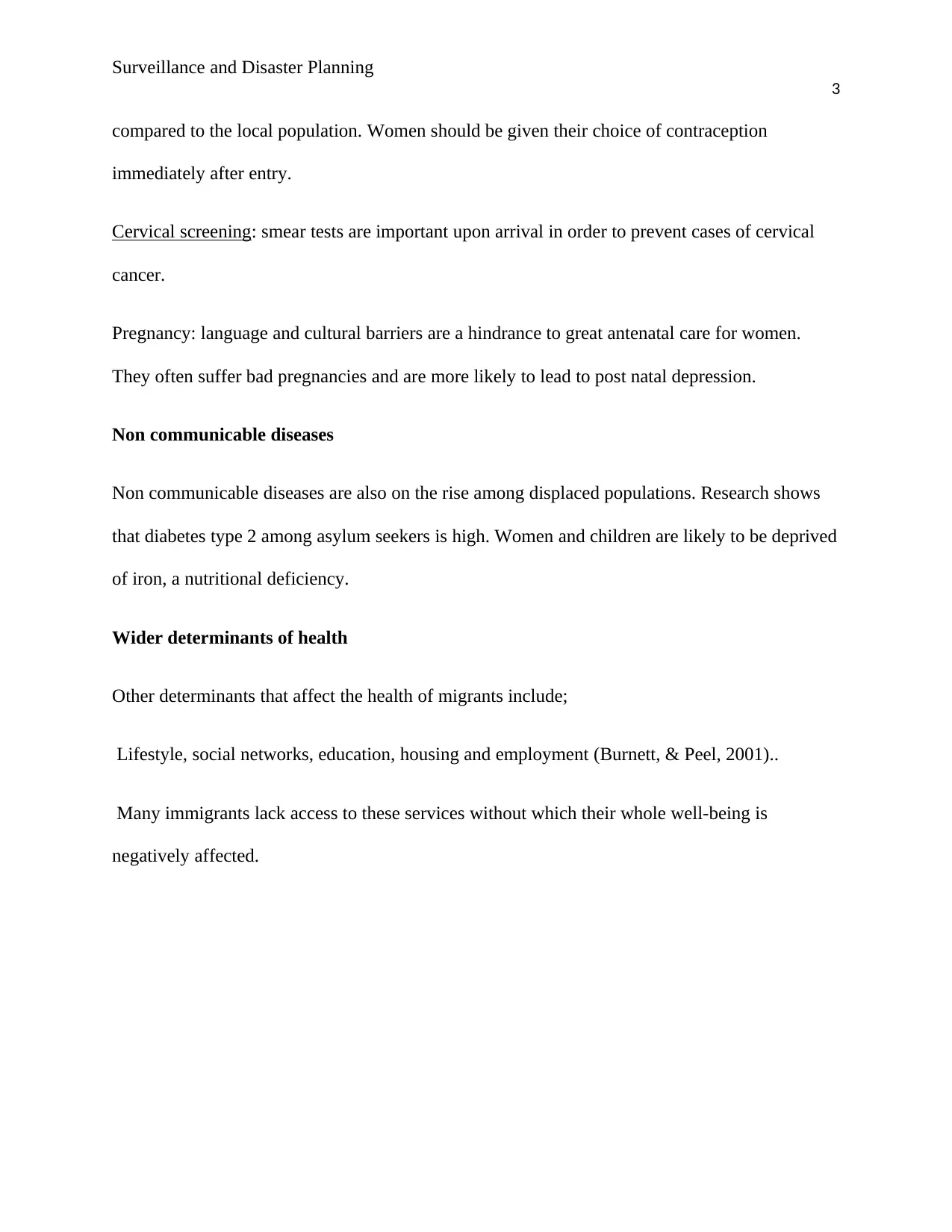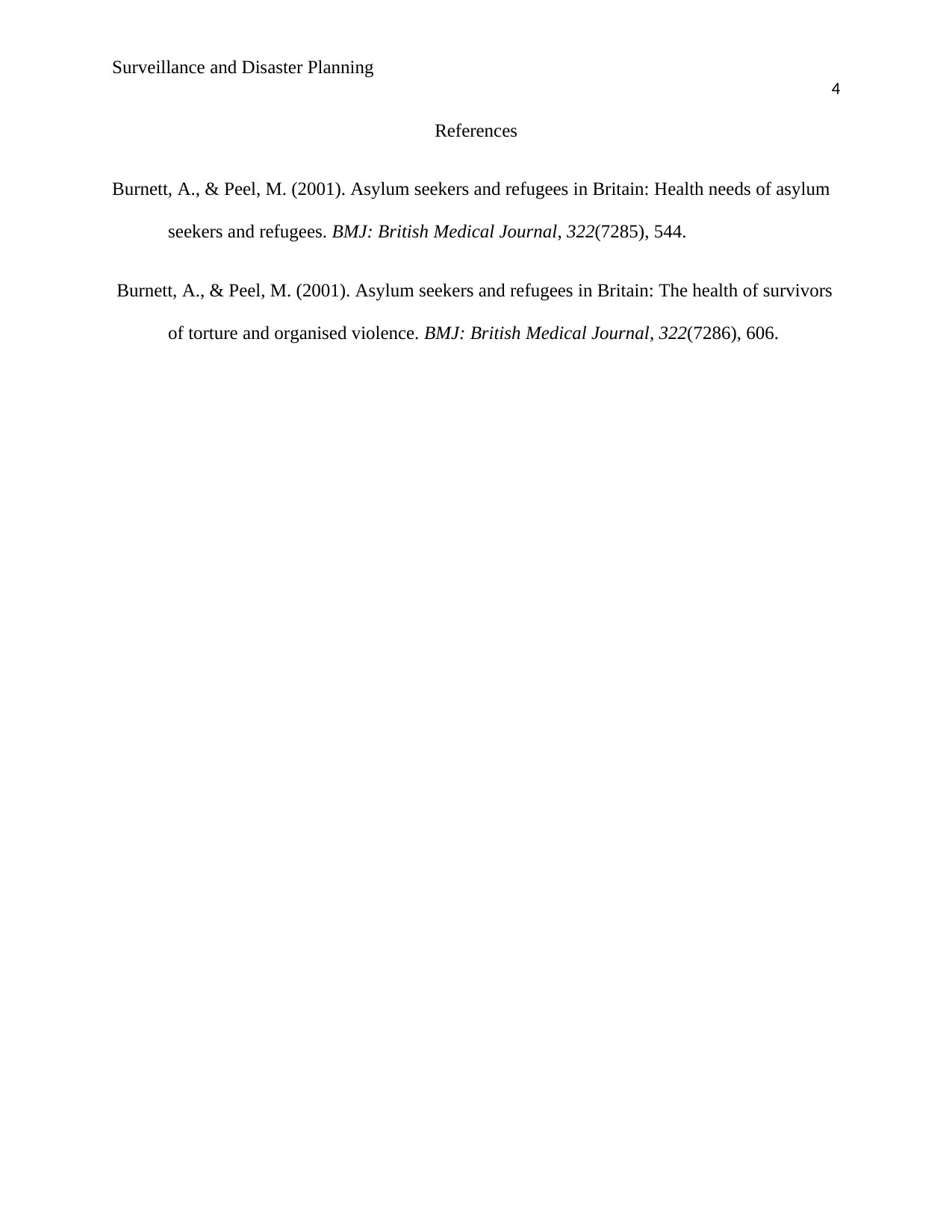Surveillance and Disaster Planning: Health of Asylum Seekers
VerifiedAdded on 2023/06/07
|4
|531
|272
Report
AI Summary
This report focuses on the health needs of asylum seekers and refugees, addressing key challenges such as mental health issues (depression, PTSD, and suicide), communicable diseases, and the specific health concerns of women. The report highlights the impact of traumatic experiences and the prevalence of diseases. It also discusses the importance of preventative measures like cervical screening and access to contraception for women. Furthermore, the report touches on the impact of non-communicable diseases and other determinants of health, including lifestyle, social networks, education, housing, and employment. The report references studies showing the prevalence of health problems in this population and emphasizes the need for tailored healthcare and support services to address the unique vulnerabilities of this group. It underscores the importance of understanding the complex interplay of factors influencing the health and well-being of displaced populations.
1 out of 4






![[object Object]](/_next/static/media/star-bottom.7253800d.svg)